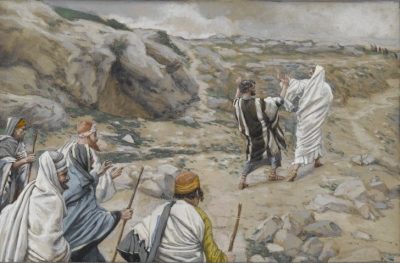 Readings:
Readings:
Jeremiah 20:7–9
Psalm 63:2–6, 8–9
Romans 12:1–2
Matthew 16:21–27
Today’s First Reading catches the prophet Jeremiah in a moment of weakness. His intimate lamentation contains some of the strongest language of doubt found in the Bible. Following God’s call, he feels abandoned. Preaching His Word has brought him only derision and reproach.
But God does not deceive—and Jeremiah knows this. God tests the just (see Jeremiah 20:11–12) and disciplines His children through their sufferings and trials (see Hebrews 12:5–7).
What Jeremiah learns is what Jesus states explicitly in today’s Gospel. To follow Him is to take up a cross, to deny yourself—your priorities, preferences, and comforts. It is to be willing to give it all up, even life itself, for the sake of His Gospel. As Paul says in today’s Epistle, we have to join ourselves to the Passion of Christ, to offer our bodies—our whole beings—as living sacrifices to God.
By His Cross, Jesus has shown us what Israel’s sacrifices of animals were meant to teach: we owe to God all that we have.
God’s kindness is a greater good than life itself, as we sing in today’s Psalm. The only thanks we can offer is our spiritual worship, giving our lives to the service of His will (see Hebrews 10:3–11; Psalm 50:14, 23).
Peter doesn’t yet get this in today’s Gospel. As it was for Jeremiah, the cross is a stumbling block for Peter (see 1 Corinthians 1:23). This is our natural temptation, as well: to refuse to believe that our sufferings play a necessary part in God’s plan.
That’s how people think, Jesus tells us today. But we are called to the renewal of our minds—to think as God thinks, to will what He wills.
In the Mass, we once again offer ourselves as perfect and pleasing sacrifices of praise (see Hebrews 13:15). We bless Him as we live, confident that we will find our lives in losing them, that with the riches of His banquet our souls will be satisfied.














